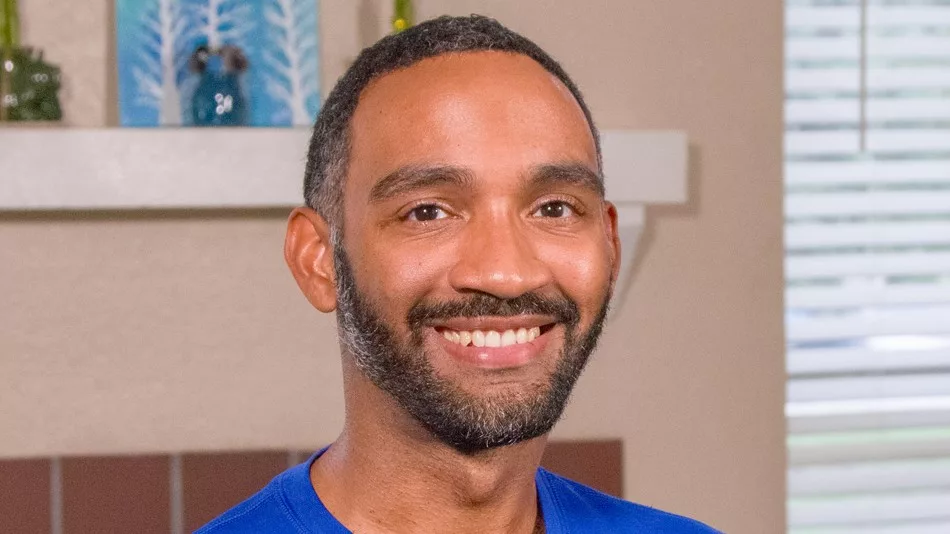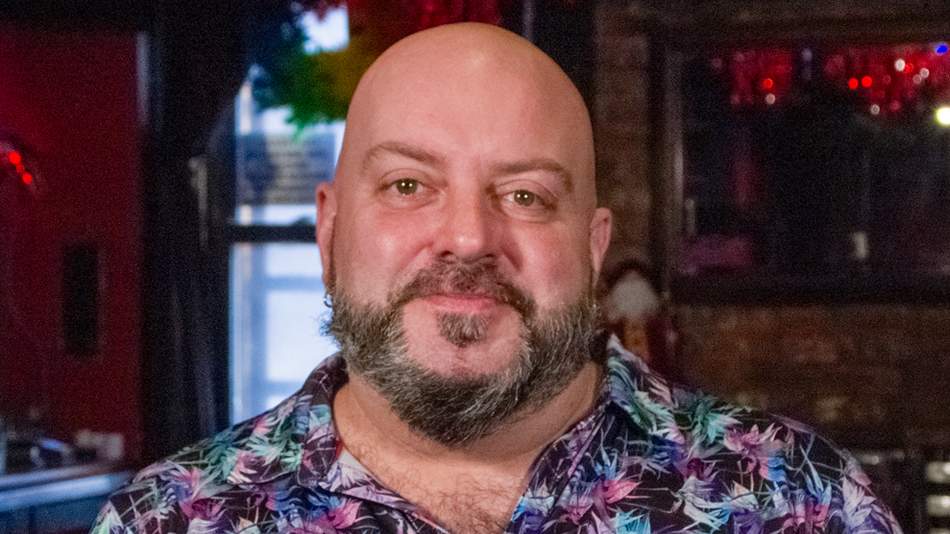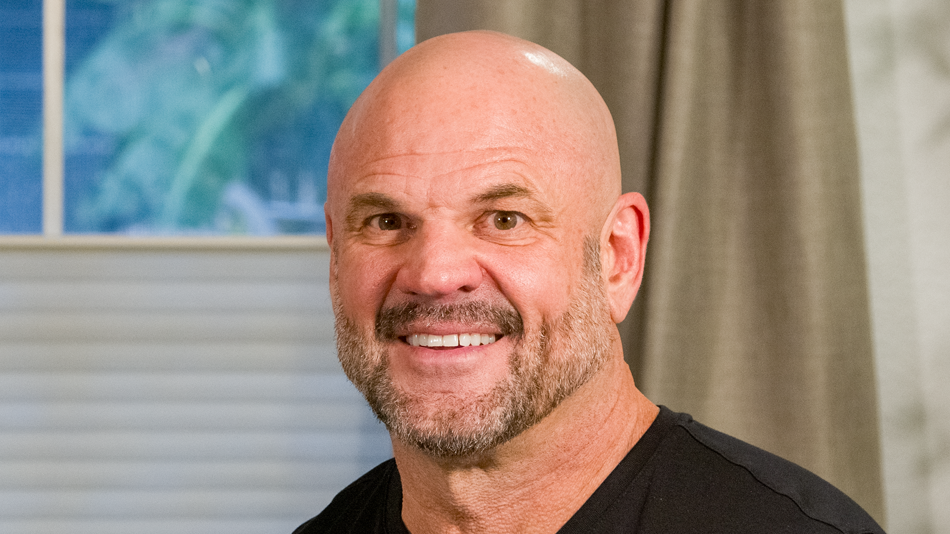My name is Rudy Garcia, and I’m from East L.A. I’m the last of eight children, and our family migrated here in the late ‘70s. My parents – at that point, by the time I reached junior high school – they could afford to send me to private school or Catholic school. And they thought that by sending me there, I would fulfill what they believe would be the American dream, which was to be a doctor, a lawyer.
So there was a lot of pressure put on me to do the best, because I was the child that was going to have the best education, and the best opportunities. So it was just like [being] constantly reminded that that was my journey, was that I was going to go to private school – like Catholic high school – and then go to college, and I was going to make my family proud.
It was hell. I never quite was like the normal kid. As a child – I don’t know – my cousins always tell me that I was always putting on a show, putting on trash bags, and pretending like I was Jem from Jem and the Holograms.
Music was always around me growing up. The summer between 6th and 7th grade is when I really started finding myself. I started listening to Siouxsie and the Banshees, and the Cure, Bad Religion, and the Adolescents, things like that.
Everything that I was into was also very not received well by my family, you know? They just thought I was crazy. ‘What are you doing?’ Or ‘How are you dressing? Oh, my God! You’re embarrassing the family!’ I would get angry at my mom, but it was this misdirected anger. I guess all that anger made me want to get involved with more feminist-type issues, or feminism in general. Through feminism, I found – ‘cause I was reading Sassy magazine – and I think that’s when I first heard about Bikini Kill or Brat Mobile. And that’s when I feel like I discovered punk rock in a whole new way.
That’s when I started feeling like I was alive again. Everything that I had in my head or these thoughts that I had were being talked about by all these bands in ‘zines, and that’s when I discovered ‘zine culture. I started my ‘zine, Scutter, right after high school, so it was the late ‘90s [1990s]. I was taking photos at the shows I was going to, and it just seemed like the natural progression, and at first, it was more like a fan ‘zine, you know? Like just writing about the bands that I liked, and occasionally getting to have them answer questionnaires or draw something and put it in my ‘zine.
It became more about expressing myself and really talking to musicians about homophobia, and feminism, and trying to change things. And then also just being really honest about my life, and my experiences, and hating my body slash trying to love my body, you know?
So as I was doing Scutter, I started meeting a lot of people that were making music. So I decided to put out a seven-inch compilation, which featured Pansy Division, and Bis, and this band, Sour Tooth, from Glasgow. That lead me into doing a festival that we did for three years called Scutter Fest. It was that whole DIY mentality with everything that I did, which was if I didn’t see it existing, then I had to make it happen.
I was interviewing people that helped me become the person that I am, and they were fully supportive of my stuff, which was even crazier to me, you know? Vaginal Davis would constantly talk about how I had this fabulous magazine. God knows if she ever read it, but she acted like I was the bee’s knees whenever I was around.
But then I’d go home, and I was seen as a loser. My family didn’t understand what I was doing, especially my parents. They just thought that I was going out all night and partying. I don’t even think that they got that I organized a festival. It was a constant battle – a constant, constant battle. It just got to the point one day where I literally had to just grab bags and just throw as much as I could in them and say ‘I’m leaving. I don’t know when I’m coming back.’ I just felt like if I didn’t leave, our relationship would have gone to a place where maybe we couldn’t have been repaired.
I came out right after high school, and it was really hard. And then, you know, as I grew older, it was just something we just did not speak about at all. I realized that two of my nephews were gay. I had a cousin who was gay, and a cousin who was trans*, and there was just all this gay in the family that I kind of just started to realize that things had to change. I finally started dating someone, and then brought them around and kind of was just like, ‘Deal with it.’
I think my siblings saw me as being happy, and my mom had come to the realization that, ‘Oh, I’d rather my son be in a relationship and happy, and yadda yadda, versus him being alone.’ And our family just kind of- it’s not an issue anymore, you know? I mean, it’s still not something we talk about over dinner or whatever.
So these days, I’ve been working on this clothing line. I started finding this frustration whenever I went to vintage stores, they would cut off at a certain size and waist. And so, I started doing Big Boy Vintage, and then as I was doing that, that kind of lead me to doing a ‘zine-art and short stories written by people who follow Big Boy Vintage or are friends of mine. And that lead to the idea of doing t-shirts with different artist’s work. And then, hopefully next year we will be launching our first real – not “real collection” – our first collection of originally garments. All of that is rooted in that whole punk way of living, if I don’t see something that represents me, then why not create it?






Share